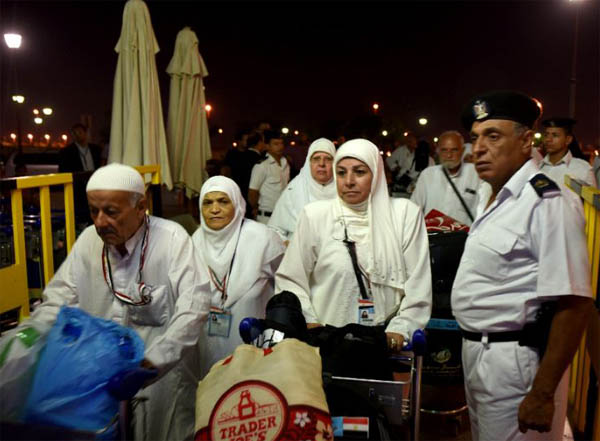(AhlulBayt News Agency) - Pilgrims have been saying their farewells at Cairo airport before leaving for Saudi Arabia to perform the hajj in the tradition, they believe, of the Prophet Mohammed and Abraham before him.
Every year tens of thousands of Egyptians apply for visas to travel to Mecca to join more than a million Muslims from across the world at the pilgrimage.
"When I was chosen, I couldn't believe it," says Afaf Hasan Rifai, who was selected by Egypt's authorities to perform the hajj to start early next month.
"I started crying and I prostrated to God," she says, her beaming husband standing next to her outside the terminal late on Thursday.
Nearby a policeman pushes a wheelchair carrying an elderly women with a cane into the terminal.
Every Muslim who can undertake the journey is expected to perform the pilgrimage at least once in his or her lifetime, but it can also be performed on behalf of another follower of the faith who is unable to do so.
Muslims have travelled to Mecca for the hajj since the 7th Century, when God is believed to have ordained it in the Koran.
Last year an estimated 2,300 pilgrims -- among them 464 Iranians and 182 Egyptians -- died in a stampede at the hajj, according to tallies from foreign officials.
'Nothing better than this'
Despite the deaths, many Muslims still dream of going -- even those who have already made repeated pilgrimages, such as 93-year-old Salem Ibrahim Rahmo.
"I'm happy as can be," said the white-turbaned Rahmo as he waits outside Cairo airport terminal.
"To visit the Prophet (tomb and mosque in Medina), this is the greatest happiness. And to visit the Kaaba. This is my third time," he says.
His son, Rahmo Mohamed Ibrahim, believes "everyone" would seize the chance to perform the hajj if allowed.
"Every person wishes to visit the houses of God and to perform the pilgrimage and fulfil his obligation," says Ibrahim, 53.
The rituals, believed to date to the time of Abraham -- who Muslims believe built the original Kaaba as the first house of worship -- will begin on September 9 and last for six days.
Men will wear seamless white clothes, and women modest Islamic garb, and circumambulate the Kaaba seven times.
They will walk between two neighbouring hills seven times, emulating, they believe, Abraham's wife Hajar as she searched for water, then symbolically cast stones at the devil.
The cathartic ritual, which pilgrims believe cleanses them of sin, is "spiritual bliss", says Ibrahim.
"There is nothing better than this."
/129
source : worldbulletin
Sunday
28 August 2016
7:55:14 AM
774988

Pilgrims have been saying their farewells at Cairo airport before leaving for Saudi Arabia to perform the hajj in the tradition, they believe, of the Prophet Mohammed and Abraham before him.
